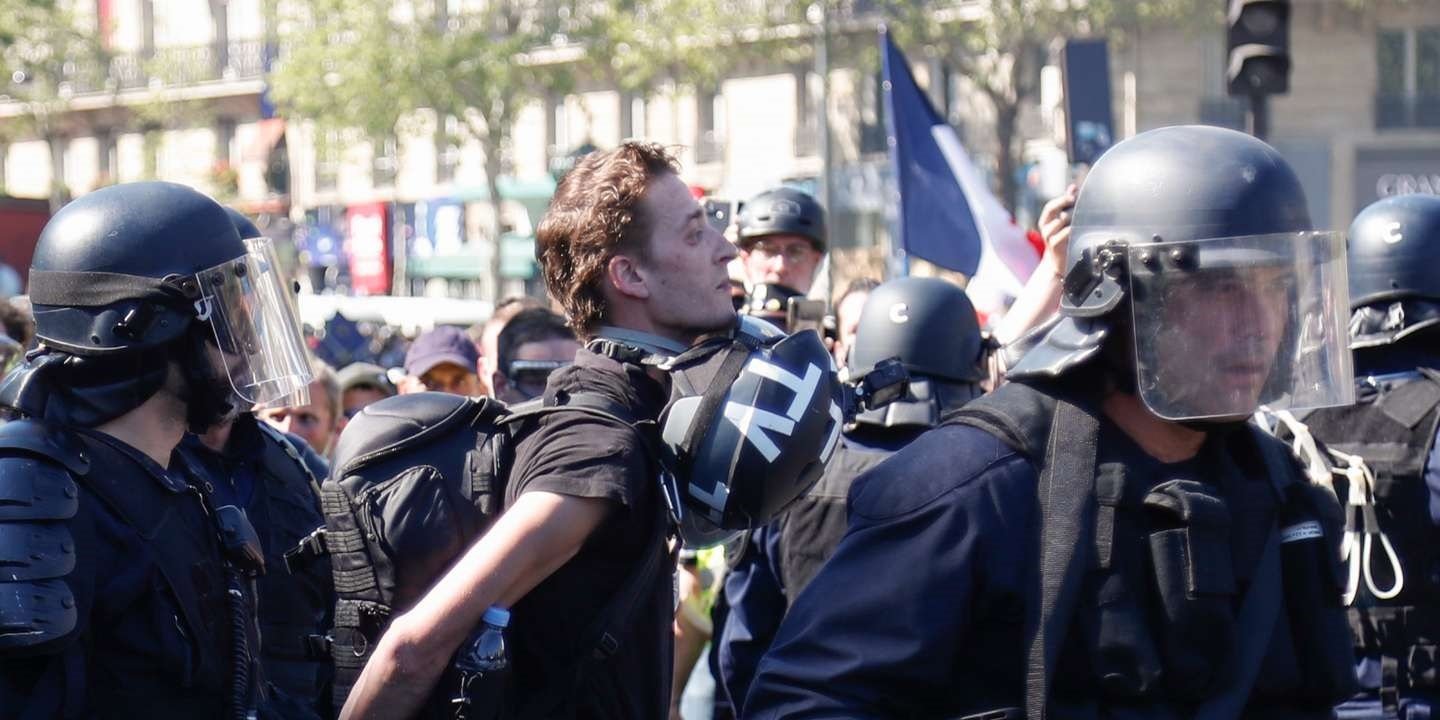FRANCE: Worrying number of arrests among journalists covering protests
On Saturday 20 April, during Act 23 of the Gilets Jaunes protests, photo-journalist Gaspard Glanz was arrested in Paris for “participation in a group aiming to commit violence or damages” and “offence against officials representing the public authority.” He was kept in custody for 48 hours after he raised his middle finger to police officers who allegedly fired teargas directly on him, although he was clearly identified as a journalist. His lawyer, Raphael Kempf, said the 48-hour period of custody was “disproportionate and illegal” and represented “an affront to freedom of the press and the freedom to inform”. He added, “If they wanted to interrogate him for giving the finger to a security officer, there is no need to keep him in custody, he could be summoned to a tribunal.”
Mr Glanz’ trial was scheduled for 18 October 2019 by the judge in charge of privation of liberties*, who imposed him a total ban of attending protests on Saturdays and on 1st May in Paris until then. His lawyer commented, “the choice was clearly to keep him away from demonstrations and from exercising his profession, otherwise the prosecutor would have banned him from any protest, not just the ones in Paris, taking place on Saturdays”. Although the Judge in the High Court pointed out at lacking and deficient grounds, he maintained the primary sentence.
An increasing number of voices warns that the new “Anti-rioters” law, which introduces new arbitrary powers to Prefects and Criminal Courts on participation to protests, puts at risk freedom of the press as well as freedom of assembly.
Arrests and detention of journalists is the latest “repressive step”
As an answer to this sentence by the High Court, more than 20 journalists’ associations have written an open letter, asking the Correctional Court to overrule the High Court’s decision and enable Mr Glanz to exercise his duty as a journalist. In addition, they have also denounced the regular intimidations, insults, threats they were enduring from police forces in the last three years. They claim that these have intensified since the beginning of the Gilets Jaunes movements, pointing at the 79 journalists who were victims of police violence since November 2018 (90 according to Reporters Without Borders). They also condemned the “astonishing silence” from the Minister for Culture and Communication, who is supposed to champion freedom and independence of information.
On 29 April, the Correctional Court has decided to suspend the sentence issued by the High Court, thus giving back Mr Glanz the right to report about the Gilets Jaunes protests and 1st May demonstrations.
On 1 May, over 350 journalists, media outlets and photographers signed a joint column on FranceInfo (State-owned information channel) denouncing the growing number of arrests and detentions of journalists for “participation in a group aiming to commit violence or damages” as the latest “repressive step”.
They said: “For three years now, we have been witnessing a deliberate desire to prevent us from working, documenting and witnessing what is happening during the demonstrations. […] All these forms of violence have physical (injuries), psychological (psychotrauma) or financial (broken or confiscated equipment) consequences. We are personally and professionally denigrated and criminalised.”
Among the grievances, the journalists accuse police forces of systematically banning from protests those journalists who cannot show a Press Pass, although the latter is not required legally. As they explain, many of them work in precarious conditions, from day-to-day articles, without fix income. They can therefore not claim the right to a Press Pass, which is granted based on fiscal conditions. The latter shall therefore not be required to journalists and photographers.
*In French: Juge des Libertés et de la Détention (JLD), responsible for enacting imprisonment or partial freedom for individuals awaiting a trial.
Featured image: ZAKARIA ABDELKAFI /AFP

